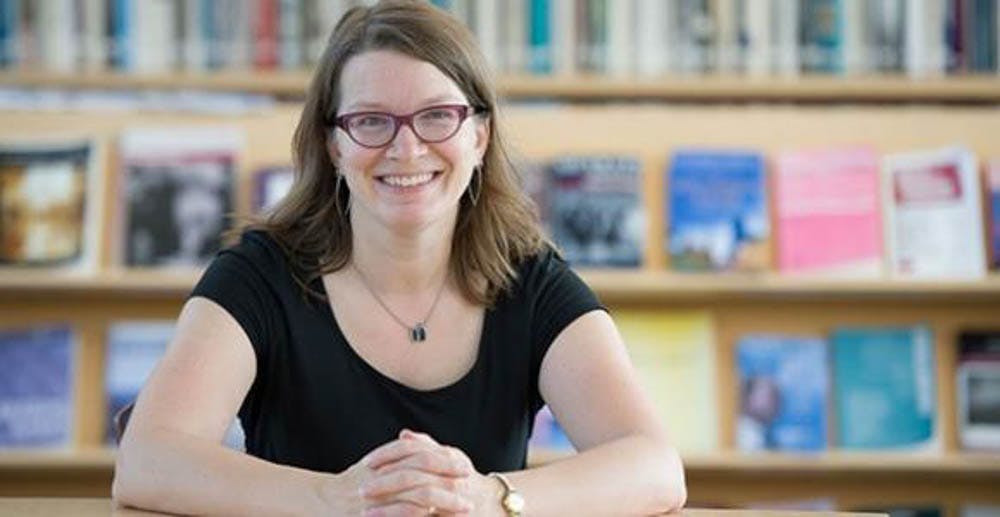During the 2018-19 academic year, the University will host a Sawyer Seminar on the subject of Race and Indigeneity in the Americas using a $225,000 grant from the Andrew W. Mellon Foundation.
The grant will fund the enrollment of a post-doc and two graduate students, as well as the organization of two separate strands of workshops and discussions throughout the year. One of these strands will consist of three bigger workshops focused on “historically, how were questions (on racialization) asked and answered; what were the methods” and “who is asking the questions, who are they asking them to,” said Professor of Anthropology Director of the Center for Latin American and Caribbean Studies Jessaca Leinaweaver, who will organize the series. The workshop will especially focus on “voices that haven’t been heard as much.” The other strand of events will be monthly all-day seminars, each organized through different units on campus, including the Population Studies and Training Center, the Institute at Brown for Environment and Society and the Center for the Study of Race and Ethnicity in the Americas. These shorter seminars will serve as opportunities for the units to invite scholars they are interested in to participate in the initiative. Leinaweaver has spoken to other faculty members about collaboration, including Associate Professor of Theatre Arts and Performance Studies Patricia Ybarra, Chancellor’s Professor of Africana Studies, Associate Dean of the Faculty for Special Initiatives, and Director of the Center for the Study of Race and Ethnicity in America Tricia Rose and Associate Professor of Africana Studies Keisha-Khan Perry.
Before applying for the grant, Leinaweaver researched race and indigeneity extensively in Peru; and with the Sawyer Seminar, she is interested in “seeing how these processes of racialization are not linked only to particular places and moments, but to try to get a broader picture” with a “hemispheric perspective,” Leinaweaver said, referring to the scope of the project as focused on North America, South America and Central America.
Racialization is “always a timely topic,” as evidenced by the NFL protests and efforts to “increase diversity and inclusion” at the University, Leinaweaver said.
It is the third time Brown has received a grant to fund a Sawyer Seminar, but this award is $50,000 more than any previous award.
The Mellon Foundation “endeavors to strengthen, promote and, where necessary, defend the contributions of the humanities and the arts to human flourishing and to the well-being of diverse and democratic societies,” according to its mission statement.
The Sawyer Seminars specifically were “set up to investigate important contemporary problems, but essentially from a humanistic lens,” said Deputy Provost Joseph Meisel. In dealing with such problems, people may not turn to the humanities “the place to turn for answers — but to have a seminar series that does focus on real questions in the world, but puts humanists in the driver’s seat for thinking about those questions at a deeper level” allows more progress to be made as issues are approached from new angles, Meisel said.
“Mellon’s idea is that it’s essentially a pop-up research center,” Leinaweaver said. “During the year, we’re gonna be thinking and talking about (racialization) nonstop, and at the end, I’m not necessarily expecting there to be a book, or an exhibit, or anything to come out of it — what I’m expecting is that we will have figured out some new directions and new questions for scholarship,” Leinaweaver said.
The grant gives scholars the opportunity “to do things they might not otherwise have opportunity or scope to do,” Meisel said. While its generous provision of funding is an asset to academia, even the process established for soliciting proposals is beneficial to scholarship in acting as a “creative stimulant” to spark the formulation of important questions, Meisel added.
Director of the John Carter Brown Library Neil Safier also read the proposal, as the JCB has also received money from Mellon, and Leinaweaver is interested in collaborating with the library for the seminars themselves. An important aspect of this “humanistic laboratory for the historical study of race indigeneity across the Americas … — and this is absolutely in line with the mission of the JCB — is not to look at this in terms of the history of race in the United States, or the history of race in Latin America, but really to explore what race and ethnicity means across a broad spectrum of the American experience,” Safier said.
Each of the successful Sawyer Seminar proposals have been organized through distinct centers or institutes within Brown, Meisel said. It’s important to “have these kind of centers that are able to draw on many of the academic departments that bring people together in particular combinations exactly to pursue important questions that go beyond departmental lines,” he said.





